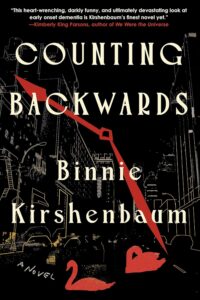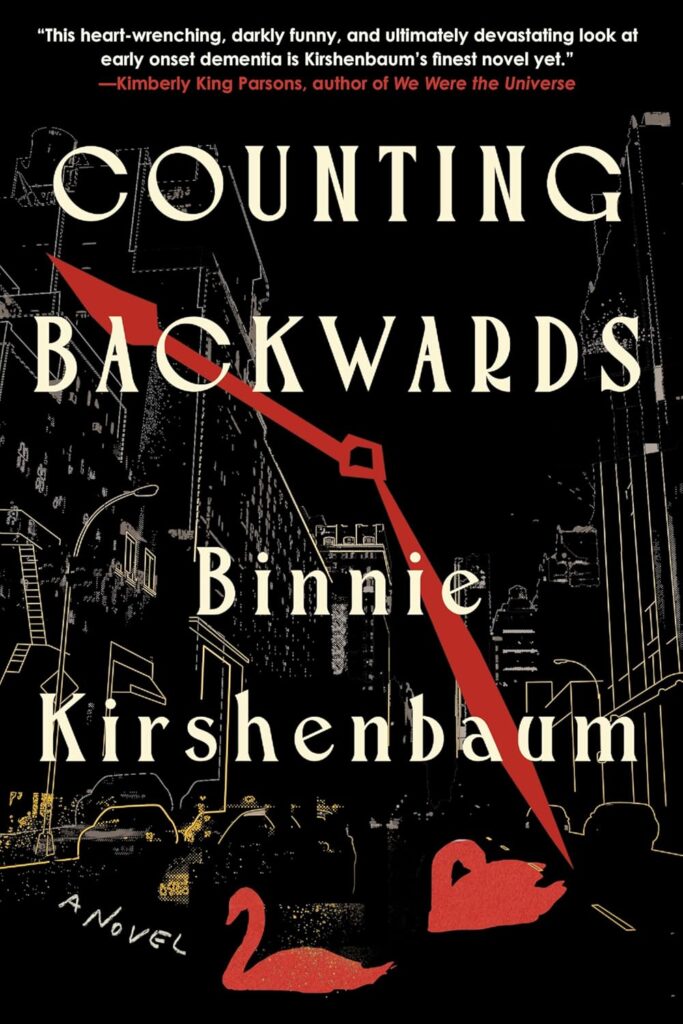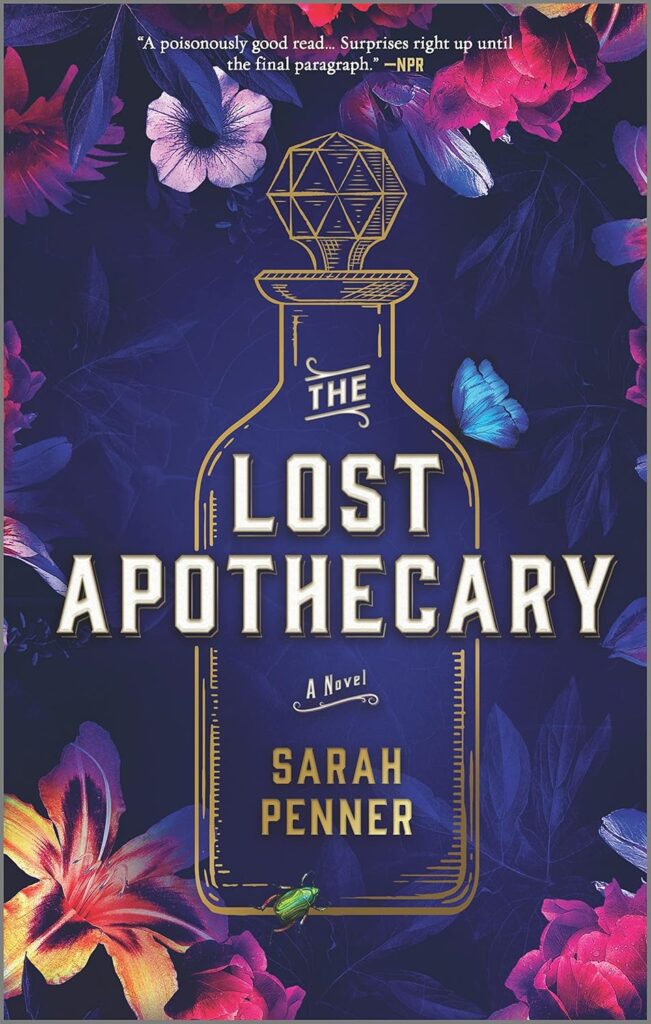There’s a special thrill in opening a novel that has shaped generations—whether it’s Elizabeth Bennet’s sharp tongue or Pierre Bezukhov’s moral struggles. While classic literature offers layers of insight and a glimpse into different eras, reading these works alongside fellow enthusiasts transforms a solitary page-turn into a living dialogue.
Joining a book club does more than keep you on schedule. Members bring diverse perspectives to each chapter, questions spark deeper analysis, and the shared journey builds a sense of camaraderie that enriches every discussion.
From gatherings around a cozy coffee table to lively virtual meetups and even curated subscription boxes, classic literature clubs come in many forms. To help you find the right fit, we assessed each group on member engagement, leadership expertise, and ease of joining.
Whether you’ve long admired Austen’s wit or are meeting Tolstoy for the first time, here are the 10 best classic literature book clubs to join now.
1. A Brief History of Classic Literature Book Clubs
From intimate drawing rooms to global online forums, classic literature book clubs have evolved alongside our modes of communication. These gatherings began as small assemblies of like-minded individuals seeking intellectual stimulation and have since grown into diverse communities—both in person and virtual—that celebrate our shared literary heritage. Tracing this evolution offers insight into how discussion formats and member expectations have been shaped over time.
1.1 The Origin: Friends in Council (1866)
One of the earliest recorded classic literature clubs was Sarah Atwater Denman’s “Friends in Council,” founded in 1866. Initially centered on history and philosophy, this group met weekly in Denman’s parlour for guided readings and spirited debate. Members were encouraged to reflect not only on plot and character, but on broader moral and spiritual questions. Their mission—to foster “intellectual and spiritual growth through shared reading”—set a precedent for the structured, discussion-focused format we recognize today. For more context on these pioneering gatherings, see The Best Book Clubs Throughout History.
1.2 Library and Salon Traditions in the 20th Century
As public libraries and community centers emerged nationwide, they became natural hosts for book discussions. Librarians often curated reading lists of canonical works, then facilitated monthly meetings in modest meeting rooms. Simultaneously, literary salons—popularized in urban centers like Paris and New York—offered a more informal setting where readers and writers mingled over tea. These salons prized wide-ranging conversation, and their format influenced later clubs that balance structured questions with open-ended dialogue. The blending of library-led programs and salon spontaneity laid the groundwork for today’s hybrid models.
1.3 Emergence of Online Communities
The late 20th century ushered in bulletin-board systems and email mailing lists that connected readers across distances. Early adopters would subscribe to weekly discussion prompts, respond via email, and await threaded replies. With the rise of forums and dedicated blogs, these exchanges gained searchable archives and richer multimedia content. Social media platforms further democratized participation, allowing anyone to start a “virtual salon” in a Facebook group or subreddit. These online communities now host thousands of members discussing classics chapter by chapter, proving that the love of timeless literature transcends both geography and format.
2. Why Join a Classic Literature Book Club?
Diving into a time-honored novel on your own can be rewarding, but sharing the experience with others often unlocks new layers of meaning. A classic literature book club combines individual reading with collective insight, turning the act of reading into an interactive journey. Whether you’re dissecting symbolism in Conrad’s heart of darkness or laughing over Jane Austen’s wit, a club setting transforms solitary reflection into a dynamic conversation.
Beyond lively discussions, these groups offer structure and support that help you stay on track, discover lesser-known works, and gain context you might miss flying solo. According to the American Library Association’s recommendations for Book Discussion Groups, the shared exploration of text promotes critical thinking and community engagement—two reasons why classic literature clubs remain popular today.
2.1 Community and Discussion
One of the strongest draws of any book club is the opportunity to engage with diverse perspectives. As members share interpretations, you’ll encounter viewpoints you may never have considered—someone’s fresh take on an unreliable narrator or a historical detail you’d overlooked can spark a richer understanding of the text. This kind of collaborative analysis doesn’t just deepen your comprehension; it fosters connections with fellow readers who appreciate the same literary landscapes.
Regular meetings create a space where debate is encouraged and questions are welcomed. You’ll learn to articulate your thoughts, field constructive challenges, and listen actively. Over time, these conversations build a sense of belonging that goes beyond the books themselves, turning acquaintances into friends.
2.2 Accountability to Read
Classic tomes—often longer or more challenging than contemporary reads—can feel daunting without external motivation. Scheduled club meetings and reading calendars provide the gentle nudge many readers need. Knowing there’s a group discussion at the end of the month helps you carve out time for each chapter and resist the temptation to set a book aside.
Some clubs even post weekly check-ins or small-group breakout sessions to keep members on pace. This built-in accountability transforms reading from a vague intention into a structured habit, making it more likely you’ll finish masterpieces you’ve always meant to tackle.
2.3 Expert-Led Insights
Many classic literature clubs enlist knowledgeable facilitators—librarians, English teachers, or published reviewers—who bring context and expertise to every session. These moderators often supply background notes on historical setting, author biography, and thematic motifs, along with guided questions that help steer conversations beyond surface details.
Publishers and libraries frequently provide free discussion guides for canonical works, and an expert leader can highlight key passages or recurring symbols you might otherwise miss. Their insights act as a roadmap, ensuring that conversations stay focused and illuminating.
2.4 Exposure to Hidden Gems
While best-loved classics like Pride and Prejudice or 1984 often headline reading lists, book clubs are excellent venues for unearthing lesser-known public domain works. You might stumble across an obscure Victorian novella, an early 20th-century women’s manifesto, or a forgotten travelogue—titles that haven’t been adapted into films or bestseller lists but deserve renewed attention.
In our Tips section, we’ll point you toward newly public-domain favorites (including the 2025 entries highlighted by AP News), so you can recommend hidden treasures in your next meeting. Exploring these under-the-radar works broadens your literary horizons and makes every club session an adventure.
3. How to Choose the Right Classic Literature Book Club
With so many options out there, finding the club that fits your lifestyle and reading goals takes a bit of homework. Consider how you like to connect with fellow readers, how much time you can commit, and what kind of atmosphere helps you engage most deeply with a text. Below are four key factors to weigh as you explore your options.
3.1 Format: Virtual vs. In-Person
Virtual clubs offer the ultimate flexibility. You can log in from anywhere—your couch, a coffee shop, or even during a commute—making it easier to fit meetings into a busy schedule. They often use video chat or discussion boards, so you can choose between real-time conversation or thoughtful, asynchronous posts.
In-person groups bring a tangible sense of community. Sharing a table with fellow readers, passing around physical books, and breaking for coffee or snacks can deepen personal connections. If you thrive on face-to-face interaction and don’t mind the occasional drive, an in-person club might feel more rewarding.
3.2 Meeting Frequency and Commitment
Before you sign up, check how often the group meets and how much reading is expected. A monthly club is a common pace: one novel or several chapters per month can fit into most calendars. Bi-monthly or quarterly clubs, on the other hand, allow for more leisurely reading and in-depth research between sessions.
Be honest about your availability. An ambitious schedule might sound exciting, but if you’re juggling work, family, or other hobbies, it can quickly feel overwhelming. Look for groups that post a reading calendar in advance—knowing the titles and dates up front helps you plan and prevents last-minute rushes.
3.3 Group Size and Dynamics
Group size can make or break the discussion experience. Six to twelve members often hit the sweet spot: large enough to spark diverse opinions, yet small enough to ensure everyone has a turn to speak. In very large forums—50 or more participants—threads can fragment, and individual voices may get lost.
Consider whether you prefer a tight-knit circle or a bustling online community. In smaller circles, you’ll likely build stronger relationships and have more time to dive into subtleties. Larger groups, however, can introduce you to an even broader range of perspectives and offshoot discussions, especially around niche topics.
3.4 Facilitator Expertise and Niche Focus
A knowledgeable facilitator can elevate every meeting. Look for clubs led by librarians, teachers, or experienced critics who provide context on historical background, author biography, and recurring themes. Their guided questions often uncover connections you might have missed, keeping conversations focused and insightful.
Also consider a group’s thematic focus. Some clubs tackle the entire Western canon, rotating through Dickens, Dostoevsky, and Woolf. Others zero in on a specific era, region, or under-explored corner of the public domain. If you have a particular passion—Victorian novels, early American literature, or women writers of the 19th century—a niche club can offer tailored insights and reading lists aligned with your interests.
4. The Literary Compass: AI-Powered Classic Book Club
At The Literary Compass, we’ve reimagined the classic literature club by weaving together seasoned editorial insight and cutting-edge AI. This hybrid approach ensures each recommendation and discussion guide reflects both the wisdom of expert reviewers and the precision of data-driven personalization.
4.1 Overview
The Literary Compass Classic Book Club combines human curation with an AI recommendation engine. Our editorial team selects cornerstone classics—from Austen to Dostoevsky—and provides context through essays, author timelines, and thematic breakdowns. Behind the scenes, our AI analyzes your reading history, preferences, and feedback to suggest the perfect next title. The result? A reading journey that feels expertly guided yet uniquely yours.
4.2 Key Features
-
Expert Book Reviews
Each month, our reviewers publish in-depth analyses of a classic title, highlighting historical background, stylistic flourishes, and critical reception. -
In-Depth Author Spotlights
Dive into mini-profiles that explore an author’s life, influences, and lesser-known works to enrich your understanding. -
AI-Driven Personalized Recommendations
Answer a few quick questions and let our AI match you with classics that fit your taste, reading pace, and goals. -
Curated Reading Guides & Monthly Newsletters
Receive a downloadable guide with chapter summaries, discussion questions, and related essays—and arrive at each meeting fully prepared.
4.3 How to Join
- Visit the The Literary Compass homepage.
- Click “Subscribe” to sign up for our monthly newsletter—no cost, no commitment.
- In your welcome email, follow the link to our AI Book Recommender tool.
- Complete a brief preferences survey and explore your personalized reading list.
- Download the guide for your first classic selection and hop into our members-only discussion forum.
4.4 Ideal Audience
Whether you’re new to Proust or have already charted every page of Tolstoy, this club adapts to your level. Beginners gain structured guidance and friendly introductions to foundational works. Seasoned readers unlock fresh perspectives through tailored suggestions and richer contextual materials. If you crave both community and customized support, The Literary Compass Classic Book Club was designed with you in mind.
5. Read the Classics on Bookclubs.com
Bookclubs.com is a free hub connecting readers who love literary conversation. Its signature “Read the Classics” group attracts nearly 4,900 members eager to dissect canonical works, from Brontë to Balzac. You’ll find a mix of local meetups and virtual gatherings, as well as lively online threads where themes and characters are debated with enthusiasm.
5.1 Overview
“Read the Classics” sits at the heart of Bookclubs.com’s offerings. This group exists to help both novices and long-time aficionados navigate the classics together. With structured reading calendars and open discussion boards, it strikes a balance between guided exploration and free-form dialogue.
5.2 Features
On Bookclubs.com, you can:
- Search groups by keyword (e.g., “Victorian novels”) or location to uncover both in-person and online clubs.
- Access dedicated forums for each book selection, complete with member reviews, star ratings, and comment threads.
- Filter events by meeting type—online video chats, library sessions, or café gatherings—so you can choose the format that fits your routine.
Specialized subgroups also exist, lighting the way to focused discussions on postcolonial classics, early American literature, and more.
5.3 How to Join
Getting started is simple:
- Visit the Bookclubs.com Classics page.
- Register for a free account using your email address.
- Search the club directory for “Read the Classics” and click “Join.”
- Opt in for event notifications to stay informed about upcoming meetings and polls.
Once you’re a member, you can RSVP to events, comment on chapters, participate in polls, and message other members to organize side meetups.
5.4 Sample Discussions
To get a taste of the dialogue, check out recent threads like:
- Blindness by José Saramago: members explored the novel’s allegorical layers and ethical dilemmas.
- The Age of Innocence by Edith Wharton: readers unraveled its commentary on social etiquette and personal desire.
These examples showcase how “Read the Classics” blends scholarly insight with personal reflection, making every session both enlightening and engaging.
6. r/ClassicBookClub on Reddit
For readers who prefer a self-guided yet communal dive into the classics, the r/ClassicBookClub subreddit offers a chapter-by-chapter rendezvous with some of literature’s most enduring works. This grassroots community thrives on mutual curiosity and peer-driven discussion, making it a perfect spot for anyone who enjoys unpacking dense prose bit by bit.
6.1 Overview
r/ClassicBookClub is a dedicated subreddit where members agree on a classic title and read it together at a measured pace. Whether you’re tackling melodrama in Victorian fiction or navigating existentialism in modernist novels, this forum turns individual reading into a shared adventure. Discussions range from plot analysis to thematic debates, all organized around weekly or bi-weekly reading chunks.
6.2 Current and Upcoming Reads
The subreddit sidebar always features a pinned schedule listing the current classic under review—recently, the group explored Mary Elizabeth Braddon’s Lady Audley’s Secret. Upcoming selections are often proposed and voted on by members weeks in advance, ensuring a democratic process that reflects the community’s interests. Checking the sidebar is the quickest way to see what’s next on the docket.
6.3 Participation Guide
Joining is as simple as hitting “Join” on the r/ClassicBookClub page. Newcomers should skim the rules—particularly the guidelines on spoiler tags, which use Reddit’s >!spoiler!< syntax to conceal key plot twists. When posting, frame your insights as comments under the designated discussion threads for each chapter. This keeps conversations focused and easy to follow.
6.4 Community Culture
The tone of r/ClassicBookClub is conversational and welcoming. You’ll find regular Q&A threads where veteran members share reading strategies, and informal polls that let participants weigh in on pacing or future themes. Unlike some heavily moderated forums, this subreddit leans on peer-to-peer support, so don’t be surprised if a fellow reader chimes in with a historical tidbit or personal reflection that enriches your understanding of the text.
7. Classic Book Club on Zoom by Watermark Books
If you’re hunting for a friendly virtual meetup that balances scholarly insight with a warm atmosphere, Watermark Books’ Classic Book Club on Zoom is a perfect pick. Led by Shirley Wells—a retired English teacher turned bookseller—this monthly gathering delves into both time-honored masterpieces and forgotten gems. Whether you’re craving lively debate or a deeper understanding of a favorite author, you’ll find thoughtful guidance and engaging company here.
7.1 Overview
Watermark’s Classics Book Club convenes on Zoom every second Tuesday, offering readers coast-to-coast a chance to explore literature together. Shirley Wells brings decades of teaching experience to each session, supplementing passages with historical context, author anecdotes, and thematic insights. The format strikes a balance between structured discussion questions and open-ended conversation, so you can jump in whether you’re a newcomer or a seasoned classicist.
7.2 Meeting Logistics
- When: Second Tuesday of each month at 7:30 p.m.
- Where: On Zoom (you’ll receive the link after registering).
- How to register: Contact Watermark Books via their website or email to secure your spot and get meeting details.
7.3 Upcoming Titles
Plan ahead with the next four selections—each chosen to showcase a range of voices and eras:
- June 10: One Fine Day by Mollie Panter-Downes
- July 8: Augustus by John Williams
- August 12: Ex-Wife by Ursula Parrott
- September 9: Sense and Sensibility by Jane Austen
Curious about earlier reads? Browse the archive of past selections to see how the club has moved from Victorian tales to modern rediscoveries.
7.4 How to Join
Ready to pull up a virtual chair? Head over to the Watermark Classic Book Club page, follow the instructions to register, and you’ll receive the Zoom link in your inbox. There’s no membership fee—simply sign up, grab your copy of the month’s title, and prepare for spirited conversation with fellow enthusiasts.
8. Classic Literature Groups on Goodreads
Goodreads isn’t just for tracking your reading progress—it’s also home to vibrant tag-based groups that bring classic literature enthusiasts together. With thousands of members worldwide, these forums span everything from in-depth analyses of Victorian novels to discussions of ancient epics. If you love discovering new interpretations and sharing your own, Goodreads groups offer a low-barrier way to connect with readers who appreciate the canon as much as you do.
8.1 Overview
On Goodreads, “Classic Literature” groups are organized around tags rather than strict membership tiers, which makes it easy to dip in and out of conversations that interest you. You’ll find dedicated threads on authors like Dickens, Brontë, and Tolstoy, alongside niche spaces for under-the-radar public domain works. This flexible, open format means you can jump into a live chat about Wuthering Heights, post a review of The Iliad, or even start your own book recommendation thread.
8.2 How to Join
Getting started is straightforward:
- Create a free Goodreads account if you haven’t already.
- Navigate to the Goodreads Classic Literature Groups page.
- Click the “Join Group” button to follow the tag and receive updates.
- Explore individual group threads, RSVP to virtual events, or start a new discussion by tagging your post with “Classic Literature.”
8.3 Group Features
Members of Goodreads classic lit groups enjoy features that enhance discussion:
- Reading Challenges: Many groups host annual or themed challenges to motivate you to tackle a specific set of classics.
- Polls & Ratings: Vote on next month’s pick, rate books with star systems, and see how your opinions align with the community.
- Threaded Discussions: Organized forums let you follow conversations by book, author, genre, or even era.
- Virtual Events: From live Q&A sessions with special guests to holiday read-alongs, these groups frequently schedule online meetups.
- Peer Recommendations: Discover under-the-radar classics through member-created lists and personal reviews.
Whether you’re hunting for fresh insights on a well-loved favorite or eager to unearth a forgotten gem, the Goodreads classic literature community offers a robust platform to fuel your next literary adventure.
9. Classic Literature Book Club on Facebook
Facebook groups remain one of the most accessible ways to connect with readers around the globe, and the Classic Literature Book Club is no exception. This open community welcomes anyone with a passion for novels that have withstood the test of time—whether you’re revisiting Dickens or exploring an unfamiliar Shakespeare play. It’s a convenient venue for busy readers who already spend time on social media but crave a bit more structure and camaraderie around their reading.
Unlike in-person meetups, the Facebook format allows conversations to flow continuously. You can pop in to comment on a weekly discussion thread, catch up on past conversations, or even watch a recorded live session if you missed it. With members spanning multiple continents and time zones, there’s almost always someone online to share a thought or ask a question—making this group an ever-evolving hub for classic literature enthusiasts.
9.1 Overview
- Global Reach: Members hail from North America, Europe, Asia, and beyond, bringing a rich variety of perspectives to each text.
- Monthly Picks: Every month, admins announce a new classic selection—ranging from Victorian novels to early modern poetry—and pin it at the top of the group feed.
- Live Video Discussions: Scheduled Lives give members a chance to talk through key passages in real time, ask the facilitator questions, and debate thematic elements as they unfold.
9.2 Joining Process
Becoming part of this community is straightforward:
- Visit the Facebook Classic Literature Book Club page.
- Click “Join Group” and answer the simple membership questions—typically about your favorite classic authors or reading goals.
- Once approved by the group admins, you’ll gain full access to discussion threads, event announcements, and the group’s file section (where reading schedules and supplementary materials live).
There’s no membership fee—just a genuine interest in engaging with texts that have shaped literary history. Admins usually process join requests within 24-48 hours, so you can dive into discussions quickly.
9.3 Engagement Tools
To keep conversations lively and organized, the group uses several built-in Facebook features:
- Admin-Pinned Questions: At the start of each week, a featured post poses guided questions or thematic prompts to spark thoughtful responses.
- Polls: Before selecting the next book, members vote on a shortlist of recommendations, ensuring the group’s reading list reflects popular interest.
- Live Sessions: Hosts schedule regular Facebook Live events to discuss major plot points, share historical context, and take audience questions in real time.
- Files & Events: A dedicated “Files” tab stores reading calendars, character glossaries, and discussion guides, while the “Events” page tracks upcoming Lives and group milestones.
Whether you’re popping in for a quick comment or planning to participate in every live discussion, the Classic Literature Book Club on Facebook offers a flexible, engaging space to explore timeless works alongside fellow aficionados.
10. Philadelphia Classics Book Club on Meetup
Philadelphia Classics Book Club offers a chance to gather in person once a month and dive into literature that has left a lasting mark on readers and society. This group brings together a mix of dedicated bibliophiles and curious newcomers, all in search of spirited conversation and fresh perspectives on works that have shaped our cultural conversation.
10.1 Overview
Located in the heart of Philadelphia, this Meetup group focuses on “life-changing classics”—novels and memoirs that resonate across generations. Selections range from Dickens and Woolf to Baldwin and Morrison, ensuring each gathering uncovers both historical context and modern relevance. Whether you’re revisiting a favorite or tackling a title for the first time, the emphasis is on accessible discussion rather than academic critique.
10.2 Meeting Details
Meetups typically occur on the third Tuesday of each month at 6:30 p.m. Venues rotate between cozy cafés like Germantown Coffeehouse and community spaces such as the Philadelphia Free Library’s Center for the Book. With an average of 15–20 attendees, the group strikes a balance between diverse viewpoints and intimate conversation. You’ll find members from a variety of backgrounds—students, retirees, professionals—all united by a love of classic literature.
10.3 How to RSVP
Ready to join in? Head over to the Philadelphia Classics Book Club page on Meetup.com, click “Join us,” and RSVP for the upcoming session. Members receive email reminders, a reading schedule, and occasional bonus materials like short author interviews or thematic reading guides. There’s no membership fee—just bring your copy of the current book and your thoughts.
10.4 Member Experience
After the formal discussion, members often linger to continue the conversation over coffee or plan mini-events tied to the month’s selection. Past gatherings have featured a Russian tea tasting for Anna Karenina and a Victorian-inspired costume photo shoot for Jane Eyre. These casual extras foster camaraderie and make each meeting feel like a celebration of both the text and the community behind it.
11. Classics Book Club at King’s Books (Tacoma)
For over 25 years, King’s Books in Tacoma has hosted a welcoming community of classic literature lovers. Gathered in the Central Co-op meeting room, readers from the Pacific Northwest explore works that span centuries, from ancient epics to modern rediscoveries. Whether you’re a long-time participant or new to the scene, this club combines local charm with consistently engaging discussions.
11.1 Overview
The Classics Book Club at King’s Books dates back to 1994 and meets monthly on the second Wednesday. Sessions begin at 6:30 p.m. in the Central Co-op’s meeting room, located at 4502 N Pearl St, Tacoma, WA 98407. Led by passionate booksellers and occasional guest scholars, each meeting pairs guided questions with free-form conversation to ensure every voice is heard.
11.2 Current Selection
October’s pick is The Moonstone by Wilkie Collins—a Victorian mystery often credited as the first modern detective novel. Copies can be purchased in-store, or you can enjoy the audiobook on Libro.fm. For details on the paperback edition, visit the King’s Books listing.
11.3 Attendance Details
To join, email Blanca at [email protected] and she’ll send you any updates and the Zoom link (when applicable). You can also view the official event page here: King’s Books Classics Club. There’s no membership fee—just bring your copy of the month’s book and your enthusiasm.
11.4 Special Events
Beyond regular discussions, the club occasionally features guest speakers—local historians, scholars, or even the occasional author—to offer fresh perspectives. Themed gatherings, like a Victorian tea alongside Jane Eyre or a jazz-era playlist during The Great Gatsby, also help members experience classics in vivid, immersive ways.
12. Classics Book Club? on r/literature
There’s a grassroots initiative tucked into Reddit’s r/literature forum that invites readers to build a classics club from scratch. Rather than following a preset syllabus, members collaborate on everything from title selection to reading pace, making this an ideal entry point for anyone intimidated by sprawling tomes or rigid schedules. It’s a community-driven experiment in shared discovery, where every voice—novice or expert—shapes the journey.
12.1 Overview
The “Classics Book Club?” thread on r/literature serves as an open proposal for tackling timeless works together. Launched by a user eager to “start from the basics and learn together,” it operates without designated moderators. Instead, the original post sets the stage, and readers organically take the lead in suggesting books, debating merits, and structuring future meetings.
12.2 Thread Structure
In this thread, each book suggestion appears as a comment under the main post. Members signal interest by upvoting, which helps surface popular choices. Once a title reaches critical mass, volunteers outline a reading schedule—typically a few chapters per week—posting milestone reminders and discussion questions. This lightweight approach keeps things flexible while ensuring everyone knows when and what to read next.
12.3 Community Makeup
Expect a diverse mix of participants: students encountering Dickens for the first time, lifelong Austen fans revisiting familiar ground, and casual readers curious about Tolstoy. This blend of backgrounds encourages mutual teaching and learning. Beginners feel comfortable asking foundational questions, while seasoned readers contribute deeper analyses and historical context.
12.4 Getting Started
To join, head over to the r/literature Classics Book Club thread and drop a quick introduction. Upvote any titles you’d like to read or propose your own. When discussions kick off, look for posts marked with reading checkpoints—remember to use Reddit’s >!spoiler!< tags to hide key plot details. With these simple steps, you’ll become part of a collaboratively shaped exploration of classic literature.
13. The Literary Book Club Subscription
Steeped in elegance and designed for true book lovers, The Literary Book Club offers a monthly luxury subscription box that delivers a beautifully bound classic directly to your doorstep. Each edition transforms the act of reading into a celebration—unwrapping your box feels like receiving a gift curated just for you, whether you’re a longtime collector or searching for the perfect present.
13.1 Overview
Every month, subscribers receive a hardcover collectible edition of a timeless work—often featuring exclusive cover art or restored illustrations. These editions aren’t mass-market reprints; they’re chosen for their enduring literary value and presented in an upscale package that honors the book’s heritage. Past selections range from Victorian novels to early 20th-century modernist classics, each wrapped in tissue paper and accompanied by a bespoke unboxing experience.
13.2 Box Contents
Inside each subscription box, you’ll typically find:
- A premium hardcover edition of that month’s classic, often with unique dust jackets or gilt edges
- A custom-designed bookmark that complements the book’s theme
- Discussion prompts or a mini reading guide to spark conversation, whether you’re hosting a private salon or joining an informal circle
- Themed art prints or postcards inspired by the text—think botanical sketches for a Romantic poet or period-correct ephemera for a Brontë novel
These extras elevate your reading ritual, providing both aesthetic enjoyment and thoughtful context.
13.3 Subscription Details
Subscriptions are billed on a monthly basis, with options to prepay for three, six, or twelve months for a discounted rate. Shipping is included within the United States; international orders are welcome with an additional shipping fee. You can pause or cancel your subscription at any time before the next billing cycle—no hidden fees or long-term commitments required. To explore current pricing and secure your first box, visit The Literary Book Club.
13.4 Who Should Subscribe
This subscription is tailor-made for:
- Gift-givers seeking an elegant, recurring present that keeps on giving
- Collectors who appreciate specially produced editions and curated extras
- Romantics who enjoy the tactile pleasure of unwrapping a beautiful package
- Classic literature enthusiasts looking to revisit beloved titles in a fresh, luxurious format
If you want to transform your reading habit into a monthly ritual or surprise a fellow bibliophile with a thoughtful subscription, The Literary Book Club box offers an unparalleled blend of style and substance.
14. Tips for Getting the Most Out of Your Book Club Experience
Joining a classic literature book club is just the start—your engagement and preparation will determine how much you get out of each meeting. From doing a little homework beforehand to reflecting afterward, these strategies can take your participation from passive to powerhouse.
14.1 Prepare Before Each Meeting
Arriving armed with context helps you dive deeper into the text. Try to read at least one or two chapters ahead of schedule, so you have the freedom to ponder themes without racing the clock. A quick online search for an author’s biography or historical notes can illuminate why certain motifs recur or how the author’s life shaped the narrative.
Keep an eye on the annual roster of public domain additions—AP News recently highlighted the 2025 public domain entries. Exploring these newly available works can spark fresh recommendations and introduce your group to stories that haven’t yet been overanalyzed.
14.2 Speak and Listen Actively
Good discussions aren’t monologues. When you share, aim for open-ended observations (“I noticed the narrator’s unreliable memory here—what does everyone else think?”) rather than broad statements. At the same time, practice active listening: let a fellow member finish their thought before responding, and acknowledge contributions with follow-up questions.
Respecting differing interpretations turns potential conflicts into insights. You might uncover a line of dialogue your take on the symbolism, and someone else might notice a historical reference you missed. That exchange is where the magic happens.
14.3 Leverage Supplementary Resources
Don’t reinvent the wheel—many publishers and libraries provide free discussion guides packed with chapter summaries, historical context, and probing questions. For example, the American Library Association offers templates for book discussion groups. Local library websites often host author interviews, critical essays, or even archived lecture recordings that can frame your next conversation.
Online platforms like The Literary Compass also curate essays, timelines, and author spotlights you can share with the group. Dropping a link to a relevant podcast or a scholarly article before your meeting can open up entirely new avenues for dialogue.
14.4 Track Your Progress
Staying organized boosts both motivation and insight. Jot down quick notes in a notebook or use a digital log—apps like Goodreads or a simple spreadsheet work wonders. Record page numbers, favorite quotes, and questions that come to mind. Over time, you’ll build a personalized reading archive that you can revisit for book reports, blog posts, or future club discussions.
If you review past entries before each meeting, you’ll spot recurring themes or character arcs you might otherwise overlook. And nothing beats the satisfaction of watching your “to-read” list shrink as you check off each classic.
15. Your Next Chapter Awaits
You’ve seen how classic literature book clubs can turn solitary reading into a rich, social experience—whether it’s an in-person gathering around the table, a global discussion on Facebook, or a carefully curated subscription box. Each group offers its own flavor of connection, accountability, and discovery. Now it’s up to you to pick the one that feels like home.
Imagine settling into your favorite chair with the month’s selection already lined up, then logging on (or stepping out) to exchange insights with fellow readers who share your passion. Picture unwrapping a beautifully bound edition in a luxe subscription box, or joining a lively Zoom call that brings a retired English teacher right to your living room.
Whatever format suits you—virtual, local, guided by experts, or entirely DIY—there’s a classic literature book club waiting to welcome you. Ready to chart your next reading adventure? Start exploring today at The Literary Compass, where every recommendation points you toward your perfect book club match.












